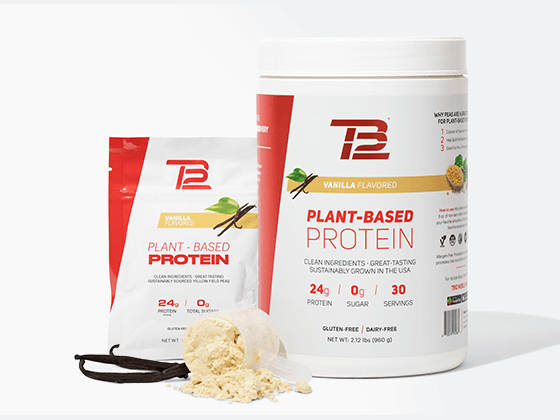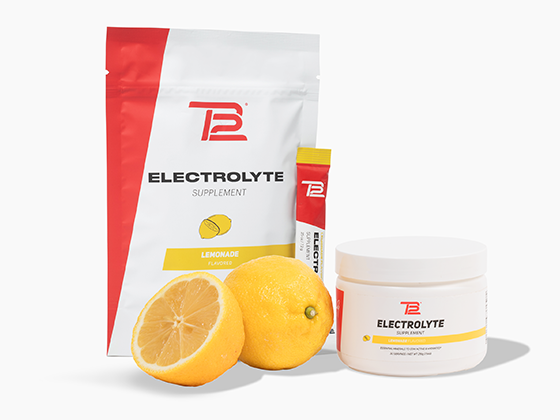Dr. Uma Naidoo is a Harvard trained nutritional psychiatrist, professional chef and nutrition specialist & author of the national bestseller: “This is Your Brain on Food."
You know the feeling: right after you stub your toe on that gosh-darned corner table, that little pinky toe hurts. It swells. It turns bright red and warm to the touch. In short, it becomes inflamed — and it’s not fun. So we wrap the toe in gauze and place an ice pack on it, perhaps take an NSAID or two. We do our level best to make that inflammation and pain, pain go away, and not come back another day.
The fact of the matter, though, is that inflammation is a vital bodily process. It is an innate defense mechanism within our bodies, to “call in the reinforcements” of our white and red blood cell brigade to auto-heal any bodily harm, injury, and infection. Without this ability, our immune systems would not know when healing or defense was needed, and day-to-day injuries and illnesses might come with a much worse prognosis.
At the same time, however, the body best handles inflammation in small doses — the occasional injury or the seasonal sickness. But constant exposure to inflammation-causing factors, as I detail below, may do much more harm than any healing. This is because the process of inflammation releases dangerous reactive oxygen species — AKA free radicals — and other compounds when responding to insult. When released in excess, the effects of these compounds can have deleterious effects on our physical and mental health.
As a Nutritional Psychiatrist, I find this fact even more compelling: inflammation, specifically neuroinflammation, is also linked to most mental health conditions, including depression, anxiety, and neurodegenerative diseases.
It’s worth our while, then, to discuss what might bring on an inflammatory response in the body. For starters, our bodies often view added chemicals or artificial ingredients in processed foods, environmental toxins, and air/water pollutants as “foreign,” subsequently inducing a mild inflammatory response. When the stimulus is food, this inflammatory response occurs particularly in the gut, where these substances are broken down and digested. Over time, chronic exposure to these minor toxins leads to chronic low-grade inflammation whose cumulative effect can lead to negative health outcomes. In a similar way, exercise induces a physiologic inflammatory response — but without proper nutrition, hydration and recovery time, this too may lead to injury. Chronic inflammation has been associated with a vast array of conditions including cancer, arthritis, asthma, Crohn’s disease, and even sinusitis, among many others. As a Nutritional Psychiatrist, I find this fact even more compelling: inflammation, specifically neuroinflammation, is also linked to most mental health conditions, including depression, anxiety, and neurodegenerative diseases.
But how could inflammation from our foods affect our brains?
This relationship between neuroinflammation — that is, inflammation surrounding the brain — and gut health and the foods is mediated by the what I affectionately term the ‘gut-brain romance.’ The gut comprises millions of nerve endings which together make up the enteric nervous system. The central nervous system shares a direct connection to the enteric nervous system by way of the vagus nerve, running from the base of our brain all the way to the GI tract. Therefore, information collected by the enteric nervous system is communicated near-instantaneously to the brain — and vice versa! It follows, then chronic inflammation of the gut from inflammatory foods and additives leads to neuroinflammation through this gut-brain superhighway of sorts. Through a variety of mechanisms, an inflamed brain environment can contribute to changes in mood, cognition, and the health of brain cells themselves, and may contribute to the onset or worsening of common psychiatric and neurodegenerative diseases.
Therefore, the nutritive value of our food directly modulates inflammation in the gut, that reaches the brain, and affects the way we think and feel, our focus and resilience, and our long-term brain health.
As a Nutritional Psychiatrist, I strongly believe that our nutrition is our strongest defense mechanism against chronic gut inflammation, neuroinflammation, and related poor physical and mental health.
The research is clear: diets rich in fiber, antioxidants, polyphenols, fermented foods, healthy fats like those from omega-3’s, avocados and extra virgin olive oil, clean proteins, and plenty of vitamins and minerals are associated with optimized gut health and reduced inflammation. Unsurprisingly, such diets are also associated with fewer symptoms of depression and anxiety, slower rates of cognitive decline, better neurological health, and overall mental and physical wellbeing.
Curious about how inflammation may be related to specific mental health conditions, and the best ways to reduce it? Here’s the scoop.
Inflammation and Depression
A growing body of evidence suggests that prolonged inflammation plays a role in the pathogenesis of major depressive disorder: a recent review indicates that consuming diets higher in inflammatory foods may increase the risk of developing depression. In contrast, dietary interventions aimed at reducing inflammation have shown to be effective in improving symptoms of depression. Our genes may not be the end all be all, either: another study shows that relationship between inflammation and depression is more significantly associated with lifestyle factors, such as diet, rather than one’s genetic makeup. People consuming diets high in fruits and vegetables report greater feelings of happiness than those consuming smaller amounts of these foods. It is hypothesized that this is due to the increase in dietary fiber — nourishing gut health in the process — and antioxidant intake, which reduces inflammation-related brain damage. Ostensibly, this decrease in inflammation achieved via healthy diet leads underlies the reduction in depressive symptoms.
Inflammation and Anxiety
Cytokines are a type of protein secreted as an immune response, and they serve as a biological hallmark of inflammation. Increased cytokine levels are commonly associated with increased stress, suggesting that the cytokine release of inflammation may trigger increased anxiety or vice versa. The gut microbiome is also a major determinant of gut inflammation and, subsequently, neuroinflammation. When the gut is overgrown with bad bacteria, inflammation, stress, and anxiety may be increased. Studies have shown that including probiotic foods and increasing the amount of fiber in one’s diet reduces the levels of bad bacteria and increases the ‘good guys’ in the gut, reducing inflammation and calming symptoms of stress and anxiety. Interestingly, receptors for several neurotransmitters are also found in the gut — and when gut inflammation is reduced, the functions of the mood-boosting neurotransmitter serotonin and calming amino acid, tryptophan, both improve, leading to lessened symptoms of depression and anxiety.
Inflammation and Neurodegenerative Disease
Left unaddressed, high levels of gut and brain inflammation may have a role in the development of serious neurodegenerative disease. Alterations in the gut-brain axis and increased neuroinflammation are associated with Parkinson’s disease, while an inflamed gut microbiome is shown to induce the neuroinflammation associated with developing Alzherimer's dementia. System-wide and localized neuroinflammation also play a role in the pathogenesis of ALS, a fatal neurodegenerative disease. While research is still working to characterize its mechanisms, chronic inflammation appears to be a common denominator among these neurodegenerative diseases. Consistent efforts to tamp down this inflammation, by reducing our intake of processed and refined foods, and prioritizing antioxidant-rich produce in our diet — I love blueberries as a nutrient-rich snack — may prove pivotal in ensuring our neurological health, particularly as we age.
I believe in a root-cause approach to health and healing, one that enables us to enjoy the best parts of being human — and for me, that’s finding joy and mental fitness in food! Adopting a nutrient rich anti-inflammatory diet, therefore, ought to be the first and favorite force against inflammation, in efforts towards our happiest, healthiest selves.
Whether it’s adding another color to your plate each day, or working towards consuming more whole foods, a healthier diet can mean less inflammation in your body — and more benefits to our brain and mood.







